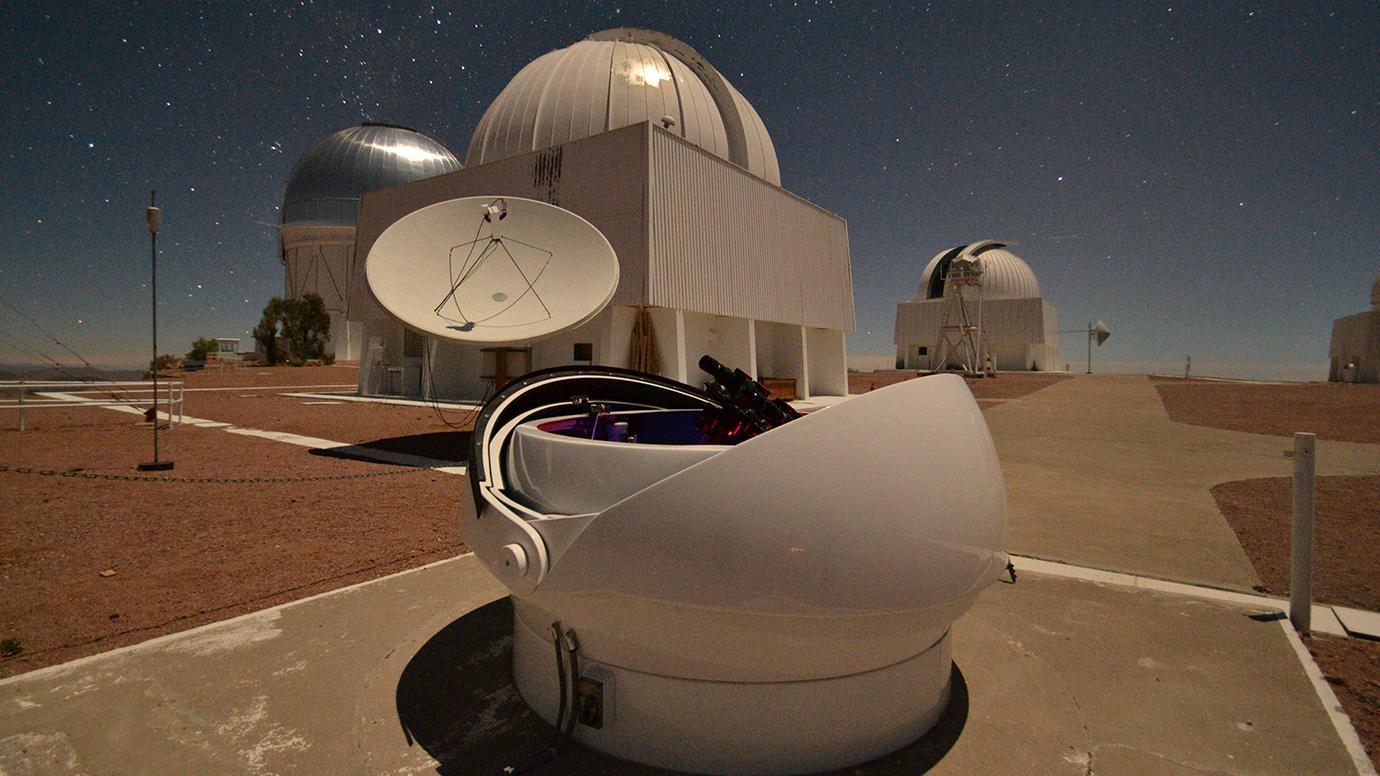Science
Scientists Explore Evolution of Dark Energy in the Expanding Universe

Research from the University of Chicago suggests that Dark Energy, a mysterious force driving the Universe’s accelerated expansion, may be evolving over time. The study, led by researchers Anowar J. Shajib and Joshua A. Frieman, builds on findings from the Dark Energy Survey (DES) and the Dark Energy Spectroscopic Instrument (DESI). Their work could provide crucial insights into the long-standing “Hubble Tension,” a discrepancy between measurements of the Universe’s expansion rate.
For more than a century, scientists have understood that the Universe is expanding, a discovery attributed to astronomers Edwin Hubble and Georges Lemaître. This phenomenon is quantified by the Hubble-Lemaître Constant. Observations from the Hubble Space Telescope in the 1990s revealed that the expansion rate was slower in the early Universe. This finding conflicted with measurements from more recent cosmic epochs, leading to increased scrutiny of Dark Energy as a potential explanation.
Recent observations from the James Webb Space Telescope (JWST) have added complexity to this issue, indicating that cosmic expansion was briefly faster in the Universe’s infancy. In response, Shajib and Frieman’s team explored new theories around Dark Energy, including the concept of Early Dark Energy (EDE) and the possibility that its influence may be weakening over time. Their findings are detailed in the journal Physical Review D.
Combining data from various observatories, the researchers found evidence that aligns more closely with dynamic models of Dark Energy, which contradict the longstanding assumption that its density remains constant as the Universe expands. Since the 1990s, scientists have hypothesized that Dark Energy could be dynamic, but recent data suggests that many major datasets are incompatible with static models.
Shajib and Frieman’s analysis indicates that Dark Energy has decreased by approximately 10% over the last several billion years. This decrease is modest when compared to other forms of matter and energy, yet significant enough to impact cosmic evolution.
The research draws on particle physics theories involving axions, hypothetical particles predicted in the 1970s. These axions have been considered candidates for Dark Matter, with researchers actively searching for them worldwide. In their models, Shajib and Frieman propose that an ultra-light version of axions could account for Dark Energy, remaining constant for several billion years before beginning to evolve.
The implications of their findings are profound. If Dark Energy’s density decreases over time, the acceleration of the Universe’s expansion may also slow. The fate of the Universe hinges on the nature of Dark Energy, with potential outcomes ranging from a continuous acceleration leading to the Big Rip, to a reversal of expansion culminating in the Big Crunch. Their models suggest a more temperate scenario, where the Universe experiences accelerated expansion for billions of years, ultimately resulting in a cold, dark cosmos—the Big Freeze.
The study’s authors are optimistic about the future of this research. Joshua A. Frieman noted that upcoming surveys from the Dark Energy Spectroscopic Instrument and the Vera C. Rubin Observatory are expected to clarify the historical progression of cosmic expansion. The results from these surveys will be pivotal in determining the validity of either the Standard Lambda Cold Dark Matter (LCDM) model or the dynamic Dark Energy model.
In summary, the evolving nature of Dark Energy presents a significant shift in our understanding of cosmic history. As scientists continue to probe the mysteries of the Universe, the implications of this research could redefine fundamental concepts in cosmology.
-

 Lifestyle4 months ago
Lifestyle4 months agoLibraries Challenge Rising E-Book Costs Amid Growing Demand
-

 Sports3 months ago
Sports3 months agoTyreek Hill Responds to Tua Tagovailoa’s Comments on Team Dynamics
-

 Sports3 months ago
Sports3 months agoLiverpool Secures Agreement to Sign Young Striker Will Wright
-

 Lifestyle3 months ago
Lifestyle3 months agoSave Your Split Tomatoes: Expert Tips for Gardeners
-

 Lifestyle3 months ago
Lifestyle3 months agoPrincess Beatrice’s Daughter Athena Joins Siblings at London Parade
-

 World3 months ago
World3 months agoWinter Storms Lash New South Wales with Snow, Flood Risks
-

 Science4 months ago
Science4 months agoTrump Administration Moves to Repeal Key Climate Regulation
-

 Science3 months ago
Science3 months agoSan Francisco Hosts Unique Contest to Identify “Performative Males”
-

 Business4 months ago
Business4 months agoSoFi Technologies Shares Slip 2% Following Insider Stock Sale
-

 Science4 months ago
Science4 months agoNew Tool Reveals Link Between Horse Coat Condition and Parasites
-

 Sports4 months ago
Sports4 months agoElon Musk Sculpture Travels From Utah to Yosemite National Park
-

 Science4 months ago
Science4 months agoNew Study Confirms Humans Transported Stonehenge Bluestones









